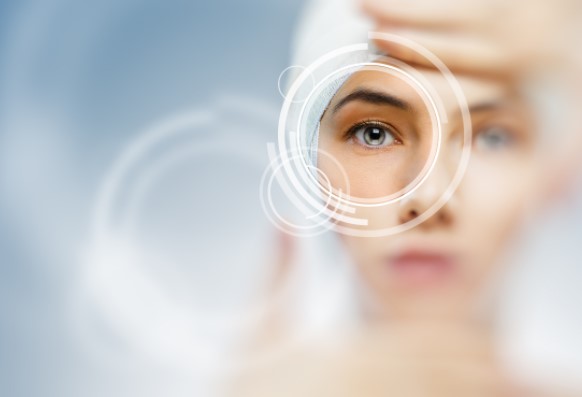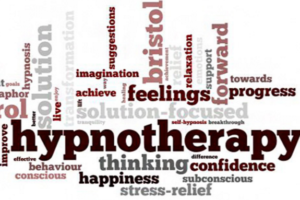
 Hypnosis has long been used to treat and manage a host of psychiatric and neurologic symptoms. However, not all patients respond equally to this therapy type. About two thirds of the general adult population are estimated to be at least somewhat hypnotizable, and 15% are highly hypnotizable.
Hypnosis has long been used to treat and manage a host of psychiatric and neurologic symptoms. However, not all patients respond equally to this therapy type. About two thirds of the general adult population are estimated to be at least somewhat hypnotizable, and 15% are highly hypnotizable.
Through brain imaging, the Stanford team found that high hypnotizability is associated with greater functional connectivity between the left dorsolateral prefrontal cortex (DLPFC) and the dorsal anterior cingulate cortex.
“A novel aspect of this trial is that we used the person’s own brain networks, based on brain imaging, to target the right spot,” Co-senior author Nolan Williams, MD, with Stanford University, California, said in a news release.
The team chose patients with chronic pain because hypnosis has been shown to be a “highly effective analgesic that has a far better risk/benefit ratio than widely overutilized opioids that have serious fatal overdose potential,” Spiegel told Medscape Medical News.
The pre-to-post SHIFT change in hypnotic induction profile scores, a standardized measure of hypnotizability, was significantly greater in the active vs sham group after just 92 seconds of stimulation (P = .046).
Only the active SHIFT group showed a significant increase in hypnotizability following stimulation, an effect that lasted for about 1 hour.
“Increasing hypnotizability in people who are low-to-medium hypnotizable individuals could improve both the efficacy and effectiveness of therapeutic hypnosis as a clinical intervention,” the researchers wrote.
They note that because this was a “mechanistic study,” it did not explore the impact of increased hypnotizability on disease symptoms. They also note that further studies are needed to assess the dose-response relationships of SHIFT.

Transformative Research
“This line of research is fascinating,” Shaheen Lakhan, MD, PhD, neurologist, and researcher in Boston, told Medscape Medical News.
“We are nearing an era of personalized, noninvasive brain modulation. The ability to individually modulate the DLPFC opens new possibilities for brain health beyond hypnotizability for fibromyalgia,” said Lakhan, who wasn’t involved in the study.
“The DLPFC is involved in executive functions (and disorders) like attention (ADHD), emotional regulation (depression), motivation (schizophrenia), and impulse control (addiction),” he noted.
“Soon we may no longer need large expensive devices like transcranial magnetic stimulators as in this research study. Smartphones could deliver tailored digital therapeutics by engaging specific brain circuits,” Lakhan predicted.
“Imagine using an app to receive treatment customized to your unique brain and needs — all without anything implanted and delivered anywhere. The potential to precisely modulate the brain’s wiring to enhance cognition and mental health, without surgery or physical constraints, is incredibly promising. The possibilities are intriguing and could truly transform how we address brain diseases,” he added.
The study was supported by a grant from the National Center for Complementary and Integrative Health (NCCIH), part of the National Institutes of Health (NIH). Williams is a named inventor on Stanford-owned intellectual property relating to accelerated TMS pulse pattern sequences and neuroimaging-based TMS targeting; has served on scientific advisory boards for Otsuka, NeuraWell, Magnus Medical, and Nooma as a paid advisor; and holds equity/stock options in Magnus Medical, NeuraWell, and Nooma. Spiegel is a cofounder of Reveri Health, Inc., an interactive hypnosis app (not utilized in the current study).

 Despite robust evidence for myriad ailments and sound mechanistic data, hypnosis is underused by internists. Using hypnosis fulfills our pledge to abide by evidence-based treatments that alleviate suffering with the least collateral harm, but there is a discrepancy between its benefits and physicians who offer the treatment.
Despite robust evidence for myriad ailments and sound mechanistic data, hypnosis is underused by internists. Using hypnosis fulfills our pledge to abide by evidence-based treatments that alleviate suffering with the least collateral harm, but there is a discrepancy between its benefits and physicians who offer the treatment.
Although hypnosis may appear in the medical curricula at academic powerhouses like Baylor, Harvard, Columbia, and Stanford, hypnosis training is rare even at these institutions. Here is why a modern resurrection of the oldest Western form of psychotherapy should inspire internists to get trained and offer medical hypnosis broadly.
Hypnosis, and its myths and misconceptions, have evolved since the 18th century when Franz Mesmer inadvertently led hypnosis into obscurity with his theory about manipulating a force called “animal magnetism.” These claims were dispelled by the French Royal Academy of Sciences, and it took nearly 100 years for Scottish physician James Braid to first describe a mental and suggestive theory of hypnosis as a waking physiologic state.
The 2014 definition from the American Psychological Association’s Division 30 describes hypnosis as “a state of consciousness involving focused attention and reduced peripheral awareness characterized by an enhanced capacity for response to suggestion.”
Long-standing empirical evidence demonstrates that hypnosis impacts perception, symptoms, and habits, which have recently been explained by advanced diagnostic modalities like functional magnetic resonance imaging (fMRI). Changes during hypnosis include reduced activity in the dorsal portion of the anterior cingulate cortex (a key component of the salience network) and connectivity between the prefrontal cortex and the insula (a pathway for mind-body control).
Augmented by data on neurotransmitter metabolism and genetics, the neurophysiologic basis of hypnosis is no longer mysterious. Though our understanding of the mechanism of action of hypnosis is more robust than that of even acetaminophen, this has not sufficed to enhance its use.
Skeptics describe hypnosis in 1 of 3 ways: dangerous mind control, an ineffective farce, or placebo. It is often viewed as a loss of control and, therefore, dangerous, when in fact it is a powerful means of teaching patients how to control mind and body. The ability to enter into hypnosis, termed hypnotizability, is a stable trait possessed by most people, which can be entered into or terminated by the patient.
is a powerful means of teaching patients how to control mind and body. The ability to enter into hypnosis, termed hypnotizability, is a stable trait possessed by most people, which can be entered into or terminated by the patient.
It is not effective in the presence of conditions such as stroke or schizophrenia or impaired focused attention or language processing. Hypnosis is more powerful than placebo (though patient expectancy is a moderating factor), and placebo effect is blocked by administration of naloxone, while the hypnotic analgesia is not.
Reviews on hypnosis for internal medicine topics are impressive, with demonstrated efficacy for migraine headache,4 irritable bowel syndrome,5 and anxiety.6 Hypnosis improves procedural pain and emotional distress and reduces medication consumption up to 40%7—in short, if hypnosis were a drug, it would be standard of care. Internists should prescribe hypnosis particularly when it outperforms the current standard of care by safety and efficacy, as in the case of opioids and sedatives.
Patients have a strong appetite for taking charge of their symptoms; online hypnosis videos for anxiety and insomnia boast 15-19 million views, and medical hypnosis is quite acceptable by patients.8 But patients cannot be expected to differentiate between legitimate and manipulative sources of hypnosis online any more than if they bought pills off the street. This treatment modality falls under the purview of medicine, and our duty is to provide safe access. To do this, we must improve the supply.
Formal training for medical providers is offered through national societies, such as the American Society of Clinical Hypnosis (ASCH) and Society for Clinical and Experimental Hypnosis (SCEH). Trainings span 4 days and include ethics and informed consent in addition to practical skills. Hospital credentialing for the privilege of hypnosis may be required: If none exists, designing one to include formal training and mentorship requirement is advised. For institutional trailblazers, individuals in the hypnosis societies can provide mentorship.
Hypnosis training includes tools for helping our patients to help themselves, which benefits all our patients even outside a formal session. Telling a patient: “Don’t think about purple elephants” will assure that they do. Through the lens of hypnosis, one appreciates that even the common phrase “How bad is your pain” is fraught with negative associations.
With all their capacity to trust their physician, patients internalize “You have bad pain.” Contrast this with the phrase, “How comfortable are you right now?” The patient scans their body for comfort rather than pain and, if discomfort is reported, can be followed up with the 0-10 scale. These subtle adjustments acknowledge comfort without the disservice of anticipatory suffering. This is the healing art of medicine.
 Additionally, the trained physician can practice self-hypnosis for stress management, insomnia, or performance anxiety, thereby avoiding medications that blunt their focus. Our patients, colleagues, trainees, and families stand to benefit.
Additionally, the trained physician can practice self-hypnosis for stress management, insomnia, or performance anxiety, thereby avoiding medications that blunt their focus. Our patients, colleagues, trainees, and families stand to benefit.
Hypnosis research is funded by the National Center for Complementary and Integrative Health (NCCIH), and researchers are making inroads into the genetic aspects of hypnotizability and response to treatment and studying hypnosis for pain management for cancer and surgery, smoking cessation, and stress management in health care.
The automation of hypnosis using recordings, web-based applications, and smart-speaker devices is being tested to expand access to hypnosis interventions. From basic science to clinical efficacy to medical education, hypnosis research of all kinds has relevance for internal medicine.
Internists are the ambassadors of evidence. Our broad training and scope maximizes our effectiveness as healers, but we mustn’t lose sight of that which experiences illness: the human mind. When the technique of hypnosis is properly illuminated, its role will be welcomed and respected by our patients.
They will benefit from less pain, anxiety, insomnia, habits such as smoking, and the side effects that accompany many pharmacological treatments. We will benefit from the satisfaction of reacting nimbly to the best evidence for safer treatments and, perhaps, also enjoy a better night’s sleep. This is a call to action for broader use of hypnosis with intrepid internists leading the charge.
by: Jessie Kittle, MD and David Spiegel, MD
 I see many smokers who are struggling to quit. Initially we talk about their smoking history, past attempts to quit and any health concerns for themselves or if they know someone whose health was compromised by smoking.
I see many smokers who are struggling to quit. Initially we talk about their smoking history, past attempts to quit and any health concerns for themselves or if they know someone whose health was compromised by smoking.
Smokers are very quick to say they hate smoking; they hate the smell, the cost and don’t like the fact that they have to go ‘somewhere else’ to smoke.
A recent client said she was at a family function and a couple of cousins were also smokers. The routine was for them to step outside and chat while they smoked.
The client had already come for her first of two office visits and had been listening to MP3 of her session daily at home. While recounting this particular smoke break story, she said it was very different from previous times. ‘We were standing in the cold next to the chimney to the back side of the house. I remember feeling so stupid because I was freezing to death and isolated from the rest of my family just to smoke.’
remember feeling so stupid because I was freezing to death and isolated from the rest of my family just to smoke.’
She spoke at length about how, in the past week, she became much more aware of the absurdity and certainly the health risk of smoking. I reminded her how hypnotherapy enhances mindfulness, we become very careful thinkers and impulsivity fades. This was likely why she saw this situation in a new light.
I asked her why she ever smoked in the first place, what was the upside? If she was so eager to condemn the cost, stink and health risk what could she possibly be getting from smoking.
She said ‘I guess I just want to smoke.’ To that I asked her to drill down into the ‘want’ a little more. Could she logically want something that checked off the cost, stink and health boxes? She paused and then responded with an emphatic ‘of course not’.
 I asked if it made sense that the ‘want’ was just a habit that had taken on a life of its own out of simple repetition? That made sense to her.
I asked if it made sense that the ‘want’ was just a habit that had taken on a life of its own out of simple repetition? That made sense to her.
Then I asked if it also made sense that by continuing to repeat the relaxing process that reinforced a comfortable smoke-free transition could fix the problem? She just smiled and nodded. After our chat we did her hypnotherapy session and she left the office feeling very focused and confident.
I routinely engage in these types of conversations with clients prior to initiating a hypnotherapy session because it helps them sort through all the details on a subconscious level. Once the session is concluded clients typically are much more focused and confident about moving forward to healthy change.
By: Paul Gustafson

 1 Mentors support growth
1 Mentors support growth
Mentors encourage and enable another person’s professional or personal development. A mentor can help focus their efforts by setting goals and giving feedback. As a result, companies that want to build employees’ skills often create mentoring programs. The mentors’ knowledge can help train and create a high-quality and productive workforce. Employees appreciate workplaces that encourage development, as it can demonstrate that their employer values them and wants to see them grow.
2 Mentors serve as a source of knowledge
Mentors can provide specific insights and information that enable the mentee’s success. For example, they offer instructions on how to perform particular tasks or develop useful skills. Individuals starting their career can benefit from such guidance, as it helps them feel comfortable in the role more quickly. For example, a mentor can help a person starting a business learn how to develop their initial business plan and budgets.
3 Mentors can help set goals
A mentor can help their mentee set personal or professional development goals. For effective goal-setting, they can create SMART goals—specific, achievable, relevant and time-based. These goals can help focus the mentee’s efforts and make it easier for the mentor to track and assess progress. They may identify smaller tasks in pursuit of a larger objective to develop specific skills or meet particular priorities.
4 Mentors maintain accountability
A mentor helps hold their mentee accountable for their goals. By tracking progress, the mentor helps the mentee stay focused and on track towards completing them. It can also ensure that the mentee does not forget about the goals they have set. Knowing that someone else is watching can serve as motivation, as the mentee likely does not want to let the mentor down by failing to meet goals.
5 Mentors offer encouragement
When the mentee finds themselves struggling to perform their job or reach a goal, they can turn to their mentor for support. This encouragement can motivate them to keep moving forward despite challenges. A mentor can also identify and express their mentee’s strengths to instill confidence in them. Having a strong sense of confidence can make the mentee less likely to give up on their goals.
6 Mentors help make connections
A mentor can help build their mentee’s professional network. When the mentee identifies professional or personal goals, the mentor can connect them to potential opportunities or individuals who can help them. As the mentor typically has more industry experience or a higher-level career, these connections can be valuable for career advancement.
 7 Mentors are willing to listen
7 Mentors are willing to listen
When an individual has ideas, they can use a mentor as a resource to discuss or try them. The mentor can provide unbiased advice or opinions using their relevant knowledge and experience. With these insights, the mentee can better understand what steps to take and whether to pursue the idea or walk away. Similarly, a mentor can also listen and advise them on daily concerns, such as workplace conflicts.
8 Mentors serve as a trusted ally
Trust represents a core element of mentoring relationships. The mentee must trust that the mentor has their best interests in mind and will provide accurate and honest guidance. The business world can also be competitive, so they need to rely on one another to keep confidential information private when necessary. Communicating regularly and following through on their promises demonstrate two methods of establishing trust in these relationships.
9 Mentors can offer constructive feedback
A trusting mentorship relationship enables honest feedback. By establishing trust, the mentee understands that constructive criticism aims to build their professional growth rather than make them feel bad. Mentors can identify weaknesses and advise them on ways to improve. Because this is a professional relationship, the mentor plays an objective role. Meanwhile, a friend may hesitate to identify the mentee’s weaknesses because they do not want to appear critical.
10 Mentors provide guidelines
For individuals just starting their career, a mentor can help set guidelines on professional expectations. For example, they may clarify the priorities of the role and proper workplace behaviors. These guidelines can help the mentee establish appropriate work habits that enable them to focus and perform their job successfully. These effective work habits can help them be more productive and impress their supervisors.
11 Mentors have relevant experience
When possible, individuals should choose mentors who have the experience relevant to their profession or goals. When mentors convey their successes, the mentee can use them as an example to strive toward and copy the steps they took. Mentors can also share the mistakes they made along their journeys. The mentee benefits because they learn lessons about the mistakes’ negative impacts but do not have to suffer the consequences themselves. Learning about these experiences can also help prepare the mentee for the challenges they can expect to face and provide demonstrable advice on how to overcome them.
12 Mentors are a free resource
Mentorship typically occurs due to networking or company programs, so mentors do not seek payment. They offer to serve this role because they genuinely want to help the other individual grow and establish a more authentic and personal connection. The lack of payment also opens up mentorship for all types of people, rather than restricting this resource to only those who can afford it. (Indeed.com)
 Hypnotherapist Paul Gustafson RN CH offers a 6-class mentoring program for new certified hypnotherapists interested in taking the fast track to professional success. Paul incorporates high-end audio and video along with creatively effective sessions which offers eager clients consistently positive results. [more]
Hypnotherapist Paul Gustafson RN CH offers a 6-class mentoring program for new certified hypnotherapists interested in taking the fast track to professional success. Paul incorporates high-end audio and video along with creatively effective sessions which offers eager clients consistently positive results. [more]
Paul’s multilevel approach includes a dynamic client office experience, digital recording of client sessions, MP3 file sharing, cable TV show production with search engine optimization, blogging and social media distribution. [contact]

 Most clients are pursuing hypnotherapy for the first time. They are not only new to hypnosis but have no experience with meditation, guided imagery or progressive relaxation. Most want to overcome long-term personal challenges with weight, stress, addiction or fear.
Most clients are pursuing hypnotherapy for the first time. They are not only new to hypnosis but have no experience with meditation, guided imagery or progressive relaxation. Most want to overcome long-term personal challenges with weight, stress, addiction or fear.
There is a common thread of frustration when clients discuss their situations: dieters fail; medications, at best, are just symptom management; and traditional talk therapy is often described as a constant reminder of the problem with no sustainable solutions. New clients may not know much about hypnotherapy but they have a really good idea of what hasn’t work so far.
Important components to success with hypnotherapy involve comfort and trust. If new clients are comfortable with the practitioner, the surroundings and trust that this individual is acting in their best interest, then chances of a positive client experience are greatly enhanced.
My sessions run about 20 minutes. With clients wearing Bose noise-cancelling headphones, my voice is evenly mixed with soothing music and nature sounds delivered through a high-end audio system. It’s during this relaxed, receptive level of thought, where positive supportive suggestions and imagery can become quickly rooted.
The initial advantage of hypnotherapy over other modalities is that it feels really good. Overwhelmed, stressed-out clients typically experience deeper relaxation than they’ve experienced in a long time, on the initial visit.
Another even more significant advantage is the meditative effect. People who routinely meditate are more relaxed, focused and mindfully aware of what is important to them. They don’t act impulsively, they make better choices, and they are happier, healthier and live longer. Think of hypnotherapy as goal-oriented meditation.
 In fact, most clients experience unexpected freedom, clarity and relief in areas unrelated to what they came to fix because of this meditative effect. In general, they are more relaxed and confident which usually translates into better communication with others and a sense of feeling more in control. Clients also typically report increased depth and quality sleep; awakening more refreshed and energized.
In fact, most clients experience unexpected freedom, clarity and relief in areas unrelated to what they came to fix because of this meditative effect. In general, they are more relaxed and confident which usually translates into better communication with others and a sense of feeling more in control. Clients also typically report increased depth and quality sleep; awakening more refreshed and energized.
My clients get an MP3 recording of each session for home reinforcement which they can access with their phone. By listening to sessions on a daily basis this relaxing, mindful perspective becomes their new baseline, making it much easier to succeed with their goals. [contact]
by: Paul Gustafson RN CH

 The media we consume daily has an impact on our thinking, behavior, and emotions. If you’ve fallen into a pattern of regularly watching or listening to the news, the majority of what you’re consuming is likely about the coronavirus (COVID-19) crisis.
The media we consume daily has an impact on our thinking, behavior, and emotions. If you’ve fallen into a pattern of regularly watching or listening to the news, the majority of what you’re consuming is likely about the coronavirus (COVID-19) crisis.
And while staying up to date on local and national news, especially as it relates to mandates and health updates, is critical during this time, experts say over-consumption of the news can take a toll on your physical, emotional, and mental health.
With that in mind, the goal is to find the balance between feeling informed and educated on the situation at hand while not becoming totally overwhelmed by it. After all, when good news is available, or the situation changes for the better, it will come to you, you won’t need to seek it out.
We asked several mental health experts to explain how this constant stream of disastrous news is adding to our stress levels and increasing symptoms of anxiety and depression. Plus, tips on how to navigate the 24-hour news cycle, while still managing and protecting your mental health.
Why news can impact mental health
According to the Centers for Disease Control and Prevention (CDC), the COVID-19 outbreak is proving to be stressful for most people. During an infectious disease outbreak, the CDC says stress can include changes in sleep or eating patterns, worsening of mental health conditions, fear and worry about your health and the health of loved ones, and difficulty concentrating.
Compounding this stress is the constant stream of news about COVID-19 that we are exposed to on a daily, hourly, and even minute-by-minute basis. “Unfortunately, a lot of the news we consume today isn’t so much reporting as it is a way of keeping people addicted to the news cycle,” says licensed psychologist, Logan Jones, PsyD.
Logan Jones, PsyD.
Because sensational headlines get more attention, Jones says media outlets often end up focusing on disaster reporting—and rarely any positive news. “Consuming too much of this kind of news, whether actively or passively, can be very toxic, and what you hear has an impact on your mood,” he says.
Even if it’s just noise in the background, Jones says an alarmist news broadcast will still have a negative effect on your psyche.
“It can be damaging to constantly be reading the news because constant exposure to negative information can impact our brain,” says Annie Miller, MSW, LCSW-C, LICSW. When we experience a threat, Miller says our brain activates the fight or flight response, and the systems in our body react accordingly.
Consuming the news can activate the sympathetic nervous system, which causes your body to release stress hormones like cortisol and adrenaline. Then, when a crisis is happening, and we are experiencing this stress response more frequently, Miller says physical symptoms may arise. Some of the most common symptoms are fatigue, anxiety, depression, and trouble sleeping.
This emotional toll and negative effect on the psyche was demonstrated in a study1 that found people who watched negative material, as compared to those who watched positive or neutral material, showed an increase in both anxious and sad moods only after 14-minutes of viewing television news bulletins and programs.
In addition to an increase in anxious and sad moods, the researchers also found the results to be consistent with the theories of worry that implicate negative mood as a causal factor in facilitating worrisome thought.
Tips for managing news
 Like a lot of things, the key to staying healthy is moderation. “Staying informed is not just responsible, but critical to our safety right now, explains Kellie Casey Cook, M.S., licensed professional counselor.
Like a lot of things, the key to staying healthy is moderation. “Staying informed is not just responsible, but critical to our safety right now, explains Kellie Casey Cook, M.S., licensed professional counselor.
To strike the balance of moderation while staying informed, the World Health Organization (WHO) recommends seeking news about COVID-19 mainly so that you can take practical steps to prepare your plans and protect yourself and your loved ones. Once you have that information, it’s time to turn the news off.
And to help alleviate the mental and emotional toll this is all taking, the CDC recommends taking breaks from watching, listening, or reading news stories, especially since hearing about a pandemic repeatedly is upsetting. With that in mind, here are nine expert tips for managing the news.
Limit intake
Leaving your television on or streaming live news broadcasts on your phone while tending to other business can take a toll on you emotionally. Rather than having the news be your background noise, Haley Neidich, LCSW, is recommending less than 30 minutes per day total of social media scrolling and news exposure combined.
Schedule worry time
Scheduling a “worry time” each day is a common strategy for managing the symptoms related to anxiety disorders. Miller says this technique is also helpful for watching and digesting the news cycle. “Scroll through the news, acknowledge anything you are worried about, and make plans for addressing any issues,” she says.
Then, choose a time that is far enough away from your bedtime so that your brain has time to settle before you go to bed. The idea, says Miller, is to minimize worry and news intake by scheduling it into your day. After your worry time is over, Miller says to put the news aside and remind yourself that it’s not time to worry right now and move onto other things. “Your brain will eventually get used to this new routine and it will start to be able to let worries go more easily,” she adds.
Gauge how you feel before watching
Once you commit to limiting the amount of news you watch, Ashleigh Edelstein, a licensed marriage and family therapist, says the next step is to gauge how you feel  before and after watching to understand how it’s affecting you.
before and after watching to understand how it’s affecting you.
She says to do a quick check and ask yourself the following question: “Do you feel informed and calm, or panicked, angry, and/or pessimistic?” If it’s the latter, Edelstein says to consider how much news you’re consuming and the sources you’re getting it from, and make an intention to reduce your consumption.
Reliable news outlets
“A healthy way to approach the news cycle is to rely on outlets you know are credible, have experienced reporters who do their research, and provide balanced perspectives,” says Jones. He also says to be mindful of how much you consume. “You probably have set times every day when you eat, and you can do the same with news. Check-in with what’s going on in the world by consuming the sources that nourish you, and then move on to something else, he says.”
Get summary from close friends or family
If watching the news is triggering regular symptoms of anxiety or depression, Neidich is recommending no exposure at all. Instead, she suggests that you ask a close friend or loved one to filter the news for you. Then, have them check in with you a few times per week about the most important updates. “There is no reason that any of us need to be exposed to the news beyond that,” says Neidich.
Limit exposure to other stressors
Another point to consider, says Cook, is to give yourself permission to limit your exposure to certain people right now. “If you have a family member who is constantly posting links to questionable articles from unknown sources, go ahead and unfollow them for now.
If a friend or coworker insists on having current events related conversations that don’t feel productive and only serve to increase your anxiety, consider putting some boundaries in place with them,” she says. Something along the lines of, “Hey, I’m really starting to feel overwhelmed by this topic, so I’d prefer if we’d change the subject,” can be effective with some people.
Do something healthy after watching the news
 For most of us, consuming some form of news each day is essential. To help combat feelings of fear, anxiety, and worry that often accompany negative news, Edelstein suggests choosing to do something positive or healthy immediately after, like taking a walk, calling a friend, or working on a hobby. “Because things are so uncertain, we need healthy distractions right now to stay grounded and resilient,” she says.
For most of us, consuming some form of news each day is essential. To help combat feelings of fear, anxiety, and worry that often accompany negative news, Edelstein suggests choosing to do something positive or healthy immediately after, like taking a walk, calling a friend, or working on a hobby. “Because things are so uncertain, we need healthy distractions right now to stay grounded and resilient,” she says.
Taking steps to minimize stress during this difficult time is essential for both your physical and mental health. While watching the news can provide you with critical information about protecting yourself and others, taking in too much information can be overwhelming and detrimental to your mental health.
If you’re having trouble managing a mental health condition or you’re concerned about new symptoms, call your doctor. Also, if you’re thinking about suicide or suspect someone you love is in danger of hurting themselves, seek help immediately. Call 911, and if possible, stay with a friend or family member until you are in the care of a mental health expert.
By: Sara Lindberg

 Hypnosis has long been used to treat and manage a host of psychiatric and neurologic symptoms. However, not all patients respond equally to this therapy type. About two thirds of the general adult population are estimated to be at least somewhat hypnotizable, and 15% are highly hypnotizable.
Hypnosis has long been used to treat and manage a host of psychiatric and neurologic symptoms. However, not all patients respond equally to this therapy type. About two thirds of the general adult population are estimated to be at least somewhat hypnotizable, and 15% are highly hypnotizable.

 Despite robust evidence for myriad ailments and sound mechanistic data, hypnosis is underused by internists. Using hypnosis fulfills our pledge to abide by evidence-based treatments that alleviate suffering with the least collateral harm, but there is a discrepancy between its benefits and physicians who offer the treatment.
Despite robust evidence for myriad ailments and sound mechanistic data, hypnosis is underused by internists. Using hypnosis fulfills our pledge to abide by evidence-based treatments that alleviate suffering with the least collateral harm, but there is a discrepancy between its benefits and physicians who offer the treatment. is a powerful means of teaching patients how to control mind and body. The ability to enter into hypnosis, termed hypnotizability, is a stable trait possessed by most people, which can be entered into or terminated by the patient.
is a powerful means of teaching patients how to control mind and body. The ability to enter into hypnosis, termed hypnotizability, is a stable trait possessed by most people, which can be entered into or terminated by the patient. Additionally, the trained physician can practice self-hypnosis for stress management, insomnia, or performance anxiety, thereby avoiding medications that blunt their focus. Our patients, colleagues, trainees, and families stand to benefit.
Additionally, the trained physician can practice self-hypnosis for stress management, insomnia, or performance anxiety, thereby avoiding medications that blunt their focus. Our patients, colleagues, trainees, and families stand to benefit. I see many smokers who are struggling to quit. Initially we talk about their smoking history, past attempts to quit and any health concerns for themselves or if they know someone whose health was compromised by smoking.
I see many smokers who are struggling to quit. Initially we talk about their smoking history, past attempts to quit and any health concerns for themselves or if they know someone whose health was compromised by smoking. remember feeling so stupid because I was freezing to death and isolated from the rest of my family just to smoke.’
remember feeling so stupid because I was freezing to death and isolated from the rest of my family just to smoke.’ I asked if it made sense that the ‘want’ was just a habit that had taken on a life of its own out of simple repetition? That made sense to her.
I asked if it made sense that the ‘want’ was just a habit that had taken on a life of its own out of simple repetition? That made sense to her.
 1 Mentors support growth
1 Mentors support growth
 7 Mentors are willing to listen
7 Mentors are willing to listen
 Hypnotherapist Paul Gustafson RN CH offers a 6-class mentoring program for new certified hypnotherapists interested in taking the fast track to professional success. Paul incorporates high-end audio and video along with creatively effective sessions which offers eager clients consistently positive results. [
Hypnotherapist Paul Gustafson RN CH offers a 6-class mentoring program for new certified hypnotherapists interested in taking the fast track to professional success. Paul incorporates high-end audio and video along with creatively effective sessions which offers eager clients consistently positive results. [
 Most clients are pursuing hypnotherapy for the first time. They are not only new to hypnosis but have no experience with meditation, guided imagery or progressive relaxation. Most want to overcome long-term personal challenges with weight, stress, addiction or fear.
Most clients are pursuing hypnotherapy for the first time. They are not only new to hypnosis but have no experience with meditation, guided imagery or progressive relaxation. Most want to overcome long-term personal challenges with weight, stress, addiction or fear.
 In fact, most clients experience unexpected freedom, clarity and relief in areas unrelated to what they came to fix because of this meditative effect. In general, they are more relaxed and confident which usually translates into better communication with others and a sense of feeling more in control. Clients also typically report increased depth and quality sleep; awakening more refreshed and energized.
In fact, most clients experience unexpected freedom, clarity and relief in areas unrelated to what they came to fix because of this meditative effect. In general, they are more relaxed and confident which usually translates into better communication with others and a sense of feeling more in control. Clients also typically report increased depth and quality sleep; awakening more refreshed and energized.
 The media we consume daily has an impact on our thinking, behavior, and emotions. If you’ve fallen into a pattern of regularly watching or listening to the news, the majority of what you’re consuming is likely about the coronavirus (COVID-19) crisis.
The media we consume daily has an impact on our thinking, behavior, and emotions. If you’ve fallen into a pattern of regularly watching or listening to the news, the majority of what you’re consuming is likely about the coronavirus (COVID-19) crisis. Logan Jones, PsyD.
Logan Jones, PsyD. Like a lot of things, the key to staying healthy is moderation. “Staying informed is not just responsible, but critical to our safety right now, explains Kellie Casey Cook, M.S., licensed professional counselor.
Like a lot of things, the key to staying healthy is moderation. “Staying informed is not just responsible, but critical to our safety right now, explains Kellie Casey Cook, M.S., licensed professional counselor. before and after watching to understand how it’s affecting you.
before and after watching to understand how it’s affecting you. For most of us, consuming some form of news each day is essential. To help combat feelings of fear, anxiety, and worry that often accompany negative news, Edelstein suggests choosing to do something positive or healthy immediately after, like taking a walk, calling a friend, or working on a hobby. “Because things are so uncertain, we need healthy distractions right now to stay grounded and resilient,” she says.
For most of us, consuming some form of news each day is essential. To help combat feelings of fear, anxiety, and worry that often accompany negative news, Edelstein suggests choosing to do something positive or healthy immediately after, like taking a walk, calling a friend, or working on a hobby. “Because things are so uncertain, we need healthy distractions right now to stay grounded and resilient,” she says.







